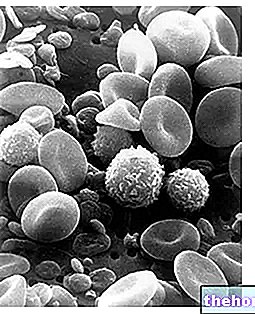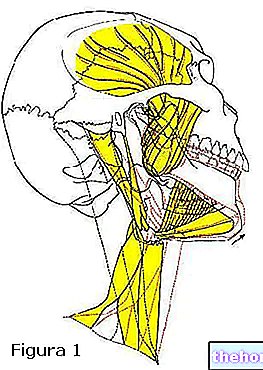Generality
Bisphosphonates - also known as bis-phosphonates or diphosphonates - are a class of drugs widely used to counteract the loss of bone mineral density.

From a chemical point of view, instead, bisphosphonates can be considered derivatives of pyrophosphate (chemical structure: P2O74-), in which the oxygen that binds both phosphorus atoms has been replaced with a carbon atom, so as to make this type of bond non-hydrolyzable.
Among the main bisphosphonates still used in therapy, we remember: alendronic acid (Alendros®, Fosamax®), etidronic acid (Etidron®), clodronic acid (Clody®), risedronic acid (Optinate®, Actonel ®), pamidronic acid (Aredia®) and zoledronic acid (Zometa®).
Therapeutic indications
As mentioned, bisphosphonates are active ingredients whose use is made to counteract the loss of bone mineral density. Therefore, the use of these drugs is indicated in the following cases:
- Prevention and treatment of osteoporosis, both in women and in men (however, male osteoporosis is less frequent than female);
- Hypercalcemia;
- Paget's disease (bisphosphonates are the first choice drugs for the treatment of this pathology);
- Other pathologies that can lead to loss of bone mineral density (as occurs, for example, in the case of hyperparathyroidism or lytic bone metastases).
Mechanism of action
Although the exact molecular mechanisms through which bisphosphonates are able to counteract the loss of bone mineral density have not yet been precisely identified, these drugs - once taken, whether orally or parenterally - are absorbed and deposit on the hydroxyapatite crystals present in the resorption sites of the bone matrix. Once deposited at this level, bisphosphonates interact with osteoclasts (the cells responsible for bone resorption), inhibiting their proliferation, shortening their average life and decreasing their activity.
Thanks to this mode of action, therefore, bisphosphonates are able to limit the bone resorption processes, favoring - albeit indirectly - the action of osteoblasts, which can thus give rise to well-mineralized bone tissue.
Side effects
The side effects induced by bisphosphonates, and the intensity with which they occur, may vary from patient to patient, both as a function of the active ingredient that is decided to use, and as a function of the sensitivity of each individual towards the same drug.
In any case, among the main undesirable effects common to most of the active ingredients belonging to the bisphosphonate class, we remember:
- Nausea;
- Abdominal pain;
- Diarrhea;
- Esophagitis.
- Osteonecrosis of the Mandible (especially demonstrated for high-dose intravenous administration, used for the treatment of some types of cancer).
This latter side effect can occur when bisphosphonates are taken by mouth with low amounts of water. For this reason, bisphosphonates by mouth should be taken in the morning immediately after waking up, with enough water to avoid irritation and possible esophageal erosion (approximately, about 200-250 ml of water). After that, the patient should stand upright for at least thirty minutes and avoid taking any other liquids or food, in order to ensure optimal absorption of the drug.
Other side effects that can occur after taking bisphosphonates (both orally and parenterally) are:
- Inflammation of the eye and / or conjunctiva;
- Asymptomatic or symptomatic hypocalcemia (the latter, however, is a rarer form);
- Slight increase in blood levels of transaminases;
- Allergic reactions in sensitive individuals.
Interactions with other drugs
In general, concomitant use of bisphosphonates and antacid drugs or calcium supplements is not recommended, as these can adversely affect the absorption of the bisphosphonates themselves.
If, on the other hand, it is necessary to take the aforementioned drugs, then these, in general, should be administered at least thirty minutes after taking the bisphosphonates.
Furthermore, it is usually also not recommended to take bisphosphonates and NSAIDs at the same time, since there is a greater risk of developing gastrointestinal damage.
Contraindications
The use of bisphosphonates is contraindicated in the following cases:
- Known hypersensitivity to the bisphosphonates themselves;
- Renal failure (since bisphosphonates are excreted via this route);
- Esophageal and / or gastric disorders;
- Peptic ulcer;
- Hypocalcemia;
- In pregnancy and while breastfeeding.




























